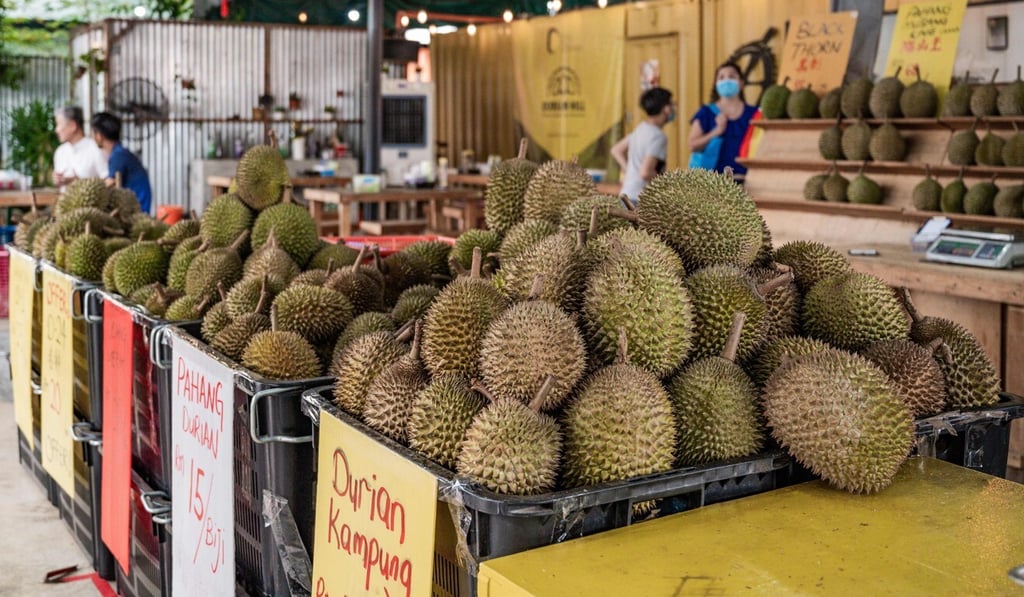In Malaysia’s Musang King hub of Pahang, a stinky deal for small farmers could hit durian production
- Joint venture between Pahang state government and a newly formed corporation threatens to edge out small-scale farmers
- Local lawmakers have raised fears that the deal amounts to a monopoly over the state’s durian trade that some say will send prices soaring

Now, production may take hit with the announcement of a corporation taking over production and edging out small-scale farmers.
A joint venture deal between the state government and the newly formed Royal Pahang Durian Resources (RPDR) corporation saw the lease of more than 5,300 acres of land in the area of Raub awarded to the company in a contract that an opposition lawmaker said would disenfranchise local farmers.
The deal, ostensibly to make way for large scale durian farming, will legalise smallhold farmers who have been tending the land for years and allow them to obtain certifications required for export, but also require them to meet yield targets and sell their produce to the corporation at a set price.

Assemblyman Chow Yu Hui said in a statement that the contract would see corporations gain a monopoly over the durian trade and send prices soaring.